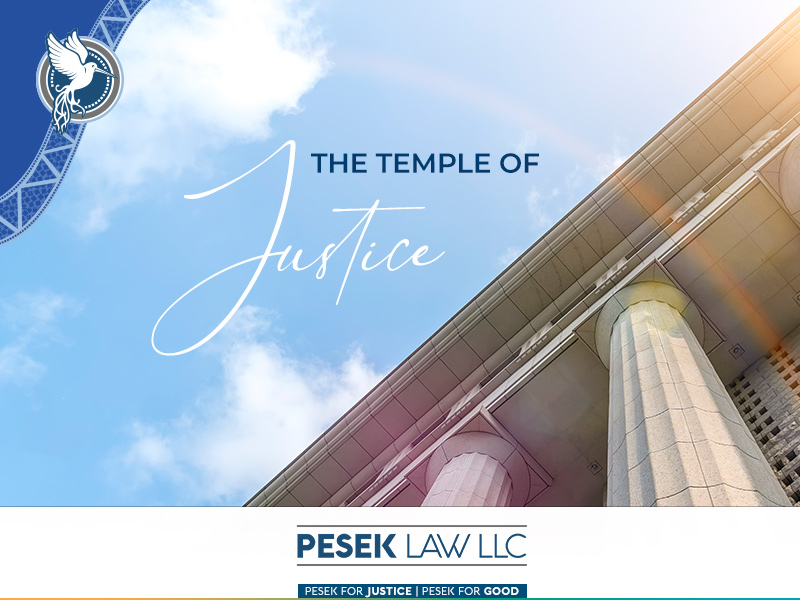
The Prairie Barrister – The Temple of Justice
In the solemn atmosphere of the Woodbury County Courthouse, under the soft illumination from the impressive, vaulted, stained-glass ceiling, the Prairie Barrister faced a jury panel. It was a moment of truth, the beginning of Voir Dire, where potential jurors’ beliefs about civil justice would be artfully probed.
“Do you believe in civil justice? That is, in appraising harm caused by negligence and assigning a monetary value to it?” the Prairie Barrister asked, opening the floor for the jurors’ honest thoughts.
One juror’s response cut through the lingering silence, “I don’t believe in civil justice. If someone negligently killed my loved ones, I’d rather go to their house and deliver street justice myself.” The statement, stark and raw, hung in the air like a challenge to the very foundations of the courthouse.
Another panel member chimed in, skepticism etched in their voice, “Isn’t this just a money grab?”
“I don’t want to hurt the defendant. They will never be able to pay a big verdict and I don’t want to ruin them financially,” admitted another, their reluctance evident, showcasing the complexity of human emotions that legal proceedings evoke.
“This is just going to make the lawyers rich, nothing else,” another juror added, voicing a common critique with a mix of resignation, suspicion and a hint of disgust.
Despite the barrage of skepticism, the Prairie Barrister remained calm, understanding that these initial reactions were not rejections of civil justice but reflections of unexplored thoughts on the subject. In fact, the Prairie Barrister knew before they asked the question, these were the answers they would get from any jury panel. Still, the Prairie Barrister proceeded, allowing these thoughts to be aired and coaxing further discussion without any fear.
Later, in the quieter, less imposing setting of the courthouse hallway, Barrister’s young associate attorney expressed their worries. “Was that a good questions to ask? Hearing the panel, I’m concerned. Do they reject the very idea of civil justice? Is there such a thing as a fair, neutral jury? And, everyone heard it, if they were neutral before, they won’t be after hearing all that! I didn’t hear one person say they agree with civil justice. Do you really think we can win?”
The Prairie Barrister, ever the beacon of assurance, addressed the associate’s concerns with a wisdom that seemed to draw from the very walls of the courthouse. “It’s understandable they feel that way. Most likely they have never even thought about civil justice before today. But remember, this courthouse, this ‘temple of justice,’ has a transformative power.”
“The jurors will sit for days in this sacred space, surrounded by the symbols of justice. The jurors will listen to witnesses, weigh the evidence, and participate in the courtroom’s rituals. They’ll be exposed to the rules and laws that lead to civil justice and ordered to follow them. It’s a process that elevates the conversation from individual retribution to collective responsibility,” the Barrister continued, their voice imbued the confidence born of witnessing the transformation take place many times.
“The jury instructions, in particular, are like a compass pointing towards justice. They are more than just guidelines; they are a distillation of our collective wisdom on how to right wrongs in a manner that is fair and just.”
The associate listened, the Prairie Barrister’s words slowly dissolving their fear, replacing it with a burgeoning sense of hope.
The Barrister continued, “By the end of the trial, after they’ve been immersed in the entire process, I believe they will see the higher possibility of civil justice. It’s about
transforming pain and suffering through acknowledgment and action. Civil justice is the middle, higher path between turning a blind-eye and doing nothing or seeking an eye-for-an-eye retribution. It is the path toward true justice.’”
The Barrister’s faith in the system, in the jurors’ capacity to understand and embrace the principles of civil justice, offered a new perspective. “The courtroom is not just a place of legal battles; it’s where understanding deepens, perspectives shift, and the higher ideals of justice are realized.” The Barrister continued, “It is our job to help this happen. It is our job to allow the power of civil justice to work upon our neighbors’ minds and spirits. It is our job to guide them toward civil justice.”
At the end of the day, after the jury had been selected, the young associate felt a newfound hope, inspired by the Prairie Barrister’s belief in the power of the courtroom to educate, enlighten, and ultimately, to deliver justice. It was a reminder that the pursuit of civil justice was a noble endeavor, one that sought not just to compensate but to restore and heal, guided by the wisdom embedded in the very fabric of the law and the sacred space of the courtroom.

 ESPAÑOL
ESPAÑOL